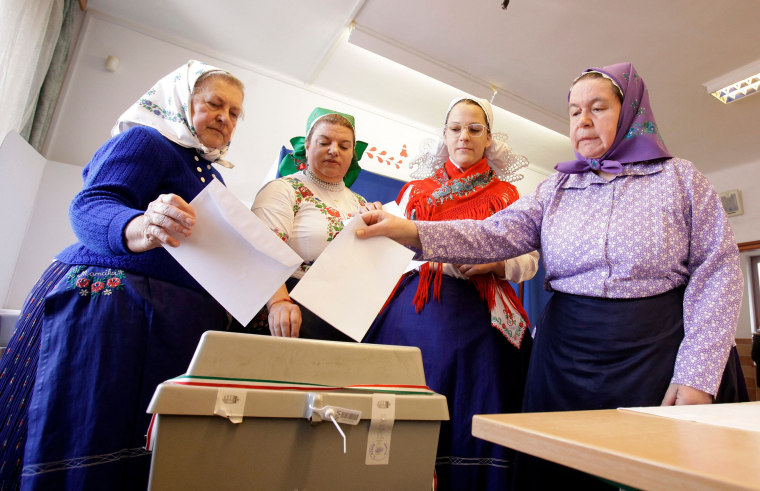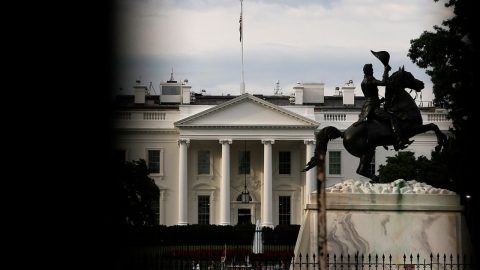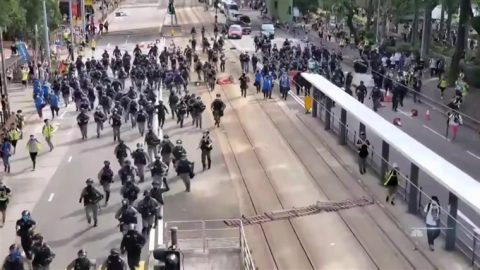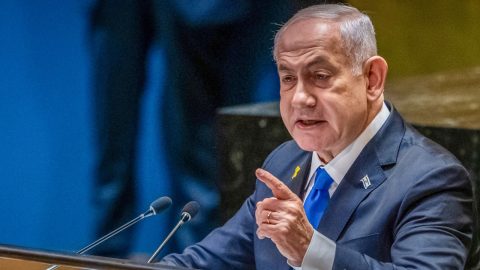BUDAPEST, Hungary — Prime Minister Viktor Orbán and his right-wing Fidesz party had a slight lead in the polls going into Hungary’s general election on Sunday, with the war in neighboring Ukraine hanging over voters’ choices.
The election is expected to be the most contested race since Orbán took power in 2010, after six opposition parties — ranging from socialists to the former far right — unexpectedly put aside their ideological differences to unite behind a joint candidate for prime minister, Peter Márki-Zay.
Speaking to reporters Sunday morning after he cast his ballot in snowy Budapest, Orbán reiterated his closing campaign message: only he and his Fidesz party could keep Hungary from being dragged into the Russia-Ukraine war.
“We ask everyone to vote for those parties who are able to guarantee peace and security,” Orbán said. “What I expect is a great victory, that’s what the country needs.”

On the eve of the election, Ukrainian President Volodymyr Zelenskyy criticized Orbán for “stubbornly supporting Putin” and not doing enough to help Ukraine.
“We did not ask for something special of Budapest,” Zelenskyy said in a video posted to his Telegram channel. “We did not see the moral leadership, did not see any effort to stop this war. Why so?”
Orbán, who has been embraced by influential American conservatives such as Tucker Carlson for championing culture war issues, began his re-election campaign stoking anti-immigrant sentiments and running against “LGBT ideology.”
But as the Russia-Ukraine conflict broke out, Orbán reframed the election as a choice between peace that he said could only be delivered by his Fidesz party, or war that he argued Hungary would be launched into if the opposition won.
While Orbán’s strategy appeared to shore up support among his followers in the final days of the campaign, it further strained his shaky relationships with European Union and NATO members who have been critical of Orbán for his close personal and economic relationship with Russian President Vladimir Putin.
Márki-Zay, the 47-year-old Catholic father of seven, was viewed as a compelling conservative alternative to Orbán. A relative political newcomer, Márki-Zay was elected mayor in an upset victory in 2018 of the small southern town of Hodmezvasarhely, a Fidesz stronghold.
Márki-Zay and other opposition candidates had attempted to make Orbán pay a political price for his cozy relationship with Putin, but Orbán’s tight control over the news media made it difficult to get their message across.
In the days leading up to the election, Márki-Zay lamented that Orbán had successfully been able to use “his fake news machine” to convince Hungarians that if the opposition won they would “send their kids to die in Ukraine.”
Márki-Zay accused Fidesz of committing voter fraud on Thursday after a local news outlet reported that completed mail-in ballots filled with votes for the opposition had been burned an dumped in neighboring Romania, home to a large ethnic Hungarian community that are eligible to participate in elections.
Hungarian election officials reported the suspected case of voter fraud to the police and Romanian police have also opened an investigation.
Freedom House, a U.S.-based rights group, released a report in 2020 saying that Hungary could no longer be considered a democracy due to Orbán’s continued efforts to chip away at democratic institutions, including his takeover of independent media organizations and the adoption of an emergency law implemented when Covid hit that allows the government to rule by decree indefinitely.
Although the war was top-of-mind for many Hungarians leading up to the election, the country is also grappling with skyrocketing inflation and sagging wages. And the E.U. has threatened to withhold funds that Hungary relies on heavily due to Orbán’s assaults against democratic norms.
Hungarians on Sunday will also vote in a referendum on a law that limits teaching about homosexuality and transgender issues in schools. Orbán has promised his supporters he will stop “the gender madness sweeping across the Western world.”
If Orbán wins, it will be his fifth term overall. He first governed in 1998-2002 before returning to power in 2010.









Recent Comments